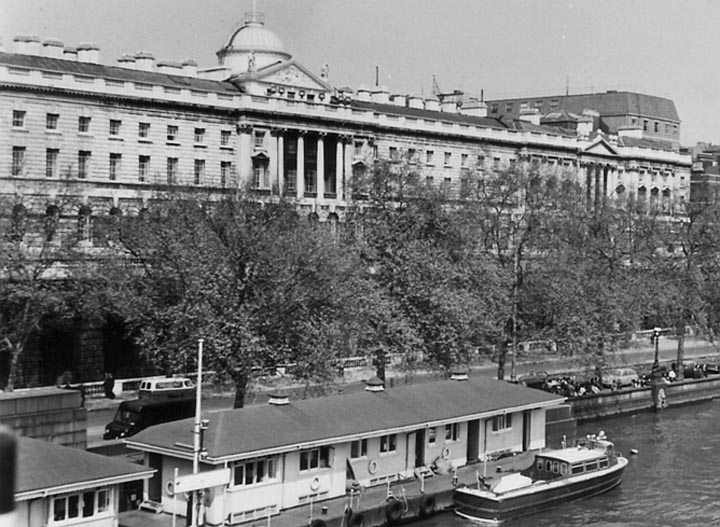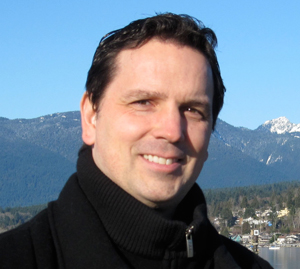I am at King’s College-London presenting at a conference on Religion and American Life. This evening most of the participants in the conference had the pleasure of hearing Darren Dochuk speak about his latest book project on the connection between oil and Evangelical Christianity. Dochuk is the author of the very good and well-received book, From Bible Belt to Sunbelt: Plain-folk Religion, Grassroots Politics, and the Rise of Evangelical Conservatism (W.W. Norton) and one of the many fine historians writing about religion today. I had the additional pleasure to have dinner with other folks in that category, including, Matt Sutton, Andrew Preston, Kevin Kruse, and Healan Gaston. So the trip has already been excellent.
Dochuk’s talk was wide-ranging, covering a period from just after the American Civil War through to the late 1970s. He touched on different types of Evangelical Christians, as well as different eras of wildcatting, drilling, refining, and globalizing oil. But in order to say something specific enough for us all to grab on to, Dochuk used the remarkable life, religion and career of Joseph Newton Pew, an industrialist who created an incredibly successful independent oil venture–eventually known as Sun Oil or SUNOCO–almost in spite of the Rockefeller monopoly, and who ultimately ended up bankrolling the PEW charitable trusts, some of Billy Graham’s crusades, and international ventures the world over. Dochuk uses Pew as an archetype for understanding how oil fit among a certain kind of Evangelical Christian individualism and spirituality. In a sense, Dochuk has provided another way for us to understand how capitalism emerged because of the religiosity Americans had cultivated over their history–it is what Dan Williams (another presenter at the conference) suggests has become the “fiscal” turn in religious history. Historians are looking at the convergence of religion and economics–from Bethany Moreton’s book on Walmart to Kevin Kruse’s forthcoming project on the religious right and capitalism–and disproving the idea that a modernity expressed by consumer culture is devoid of religion.
We might think that an obvious point, but what we have not understood well enough until fairly recently was how Christianity related to consumer culture and hyper-individualistic capitalism. Listening to Dochuk’s talk made me wonder about a few ideas that I would like to see him address, perhaps even on this blog. First, in my reading of William Cavanaugh’s work on religion and consumerism, there emerges the idea that at some point the relationship between religion and material goods leads to a religion of material goods. In other words, when there is no more sunlight between God and Sun Oil then Sun Oil becomes a god. Second, I wondered how Christian wildcat capitalists were seen by other Christians, such as Catholics who, at least for part of the 19th and 20th centuries, offered another model for relating theology to material goods and labor. Did the development of wildcat Christianity provoke a reaction within other Christian churches? Finally, (and I paraphrase Preston here), was there something uniquely spiritual about oil that made Evangelical Christians in America worship it?
One can imagine many directions to take this project, including, as Sutton observed, by following the money that flowed from the Rockefellers into the University of Chicago and other philanthropic pursuits. And there is work to be done on the connection between oil and other religions beside Christianity.
Dochuk’s work is most interesting to me when he comes to terms with how Christianity effected the operation and understanding of capitalism in American life. It stands to reason that two of the most significant ways that Americans have ordered and defined their lives–even in terms of transcendence–should be studied together. We are on the cusp of an slew of such studies.



3 Thoughts on this Post
S-USIH Comment Policy
We ask that those who participate in the discussions generated in the Comments section do so with the same decorum as they would in any other academic setting or context. Since the USIH bloggers write under our real names, we would prefer that our commenters also identify themselves by their real name. As our primary goal is to stimulate and engage in fruitful and productive discussion, ad hominem attacks (personal or professional), unnecessary insults, and/or mean-spiritedness have no place in the USIH Blog’s Comments section. Therefore, we reserve the right to remove any comments that contain any of the above and/or are not intended to further the discussion of the topic of the post. We welcome suggestions for corrections to any of our posts. As the official blog of the Society of US Intellectual History, we hope to foster a diverse community of scholars and readers who engage with one another in discussions of US intellectual history, broadly understood.
Wow! What an amazing conference lineup, Ray. And so nice to see Dochuk’s work finally getting some attention! Sorry, bad joke. My students loved Bible-Belt, and Anointed with Oil is sure to bring a groundswell of much-deserved praise for the (talk about providence) lifelong Edmonton Oilers fan. Here’s a link to Dochuk’s Journal of American History essay, in case people haven’t come across it yet:
http://www.journalofamericanhistory.org/issues/991/
Ray, I think this Chevron commercial from ca.
19781977 (per the YouTube user who posted it) gets at what might be “uniquely spiritual” about oil.http://www.youtube.com/watch?v=gei3gpG2IYU
The commercial is animated, and the vision is almost animistic. “Remember, some prehistoric creature gave his or her all for that tank of gas” — petroleum-based fuel as a distillation of life force, spirit, etc.
Sounds ominous, if not perhaps nefarious.
But start with a telos of “Be fruitful and multiply,” Weber’s “Puritan [Protestant] Work” ethos, shepherded by divine providence [“Thar’s oil in them hills”], and the idea of a manifest economic destiny would be unsurprising if it didn’t develop. Anything else would be ungrateful, lazy, or obtuse.
Interesting also is what then happens to the oil baron’s dough once it hits the heirs. Inherited money’s ethos is a bit different:.Sun Oil becomes the Pew Trust, and likewise—according to O’Sullivan’s Law—its destiny is also mapped and manifest.